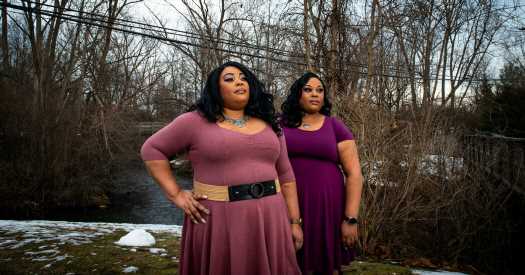Twins with Covid-19 help scientists untangle the disease’s genetic roots.

Kimberly and Kelly Standard, who are twins, assumed that when they became sick with Covid-19 their experiences would be as identical as their DNA.
The virus had different plans.
Early last spring, the sisters from Rochester, Mich., checked themselves into the hospital with fevers and shortness of breath. While Kelly was discharged after less than a week, her sister ended up in intensive care, and spent almost a month in critical condition.
Nearly a year later, the sisters are bedeviled by the divergent paths their illnesses took.
“I want to know,” Kelly said, “why did she have Covid worse than me?”
Identical twins offer a ready-made experiment to untangle the contributions of nature and nurture in driving disease. With the help of twin registries in the United States, Australia, Europe and elsewhere, researchers are confirming that genetics can influence which symptoms Covid-19 patients experience.
These studies have also underscored the importance of the environment and pure chance: Even between identical twins, immune systems can look vastly different.
But at least some of the factors that influence the severity of a Covid-19 case are written into the genome. Recent studies suggest that people with type O blood, for example, may be at a slightly lower risk of becoming seriously sick (though experts have cautioned against overinterpreting these types of findings). Other papers have homed in on genes that affect how cells sound the alarm about viruses.
There even seems to be a measurable genetic influence on whether patients experience symptoms like fever, fatigue and delirium, said Tim Spector, an epidemiologist and the director of the TwinsUK registry based at St. Thomas’ Hospital in London.
Last year, he and his colleagues developed a symptom-tracking app. In a study that has not yet been published in a scientific journal, they reported that genetic factors might account for up to 50 percent of the differences between Covid-19 symptoms.
Still, Dr. Spector said, “It would be wrong to think we can answer this if we just crack the genes.”
Source: Read Full Article
